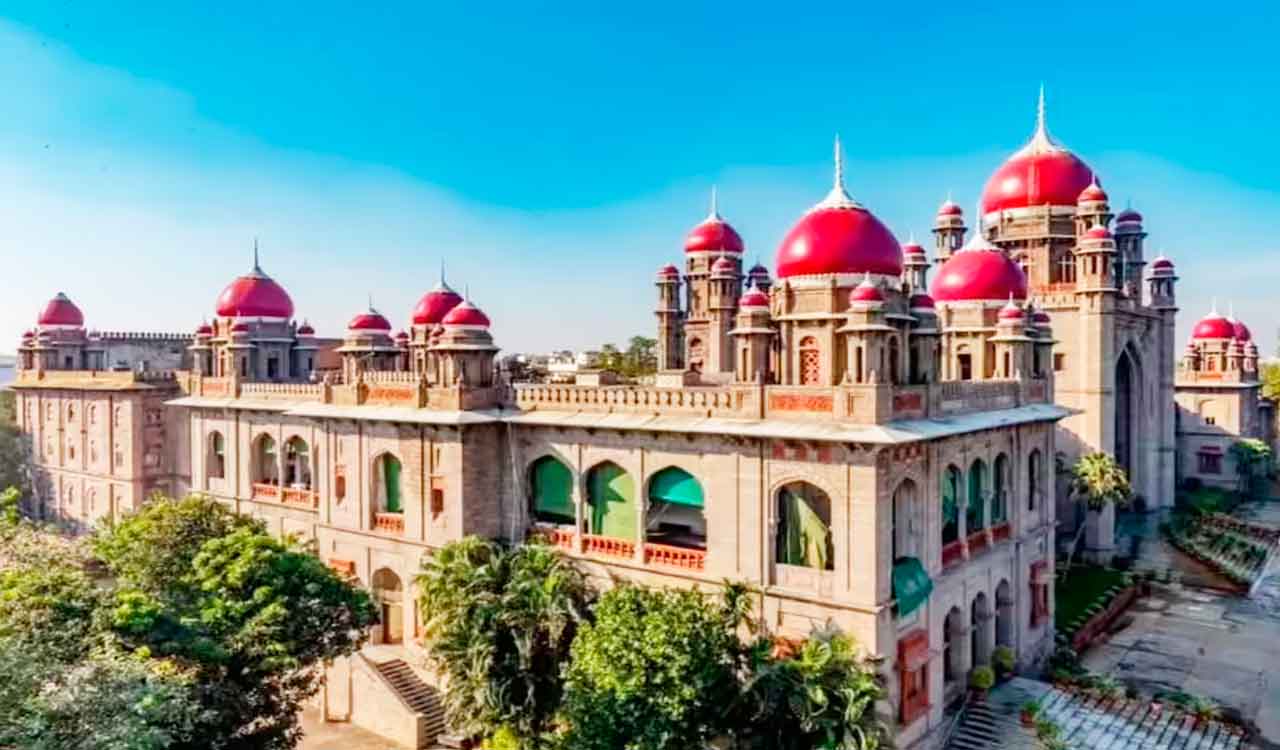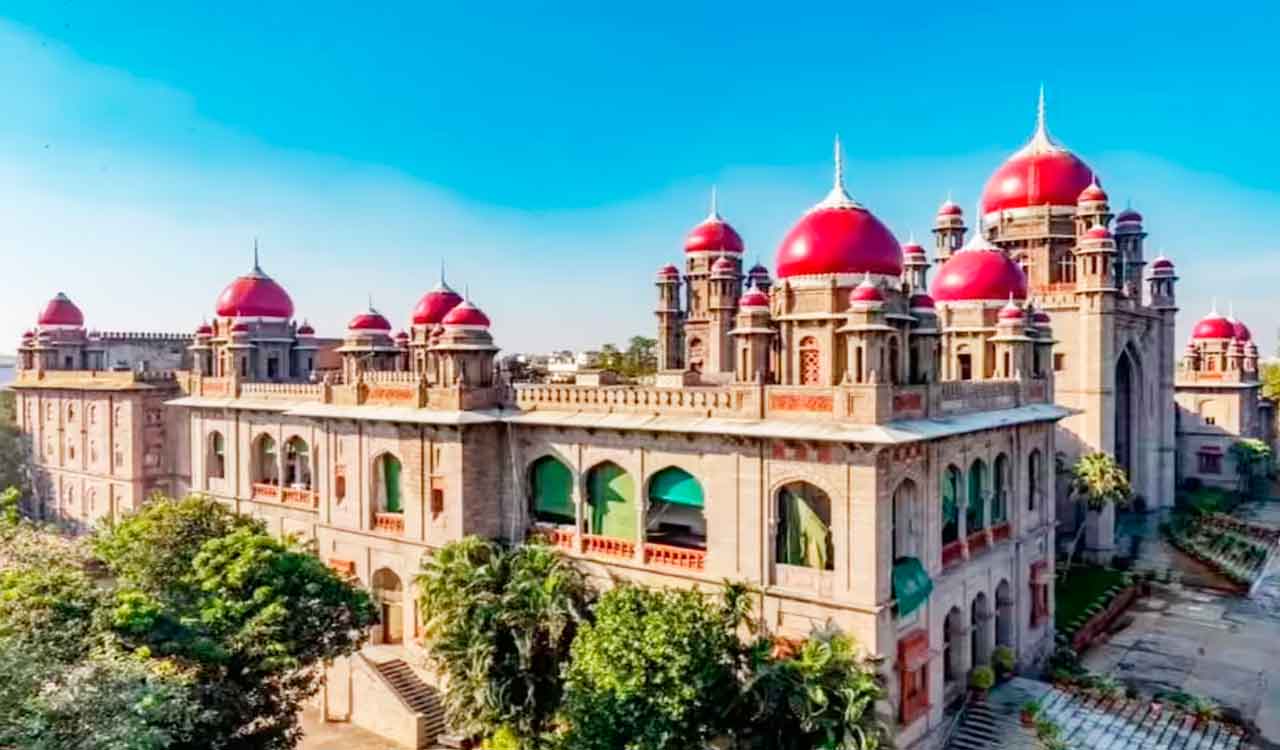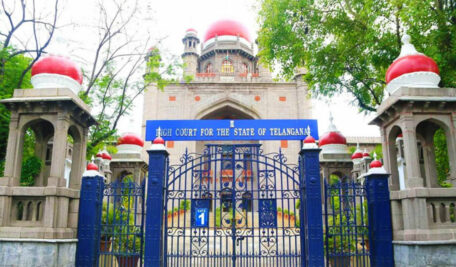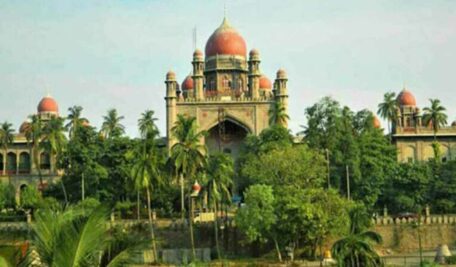Telangana HC asks HYDRAA to follow legal procedure against Palla’s institutions
The directive came following a writ petition filed by Gayatri Educational and Cultural Trust, Anurag University, and Neelima College of Medical Sciences, which are operated by a group headed by BRS MLA Palla Rajeshwar Reddy.
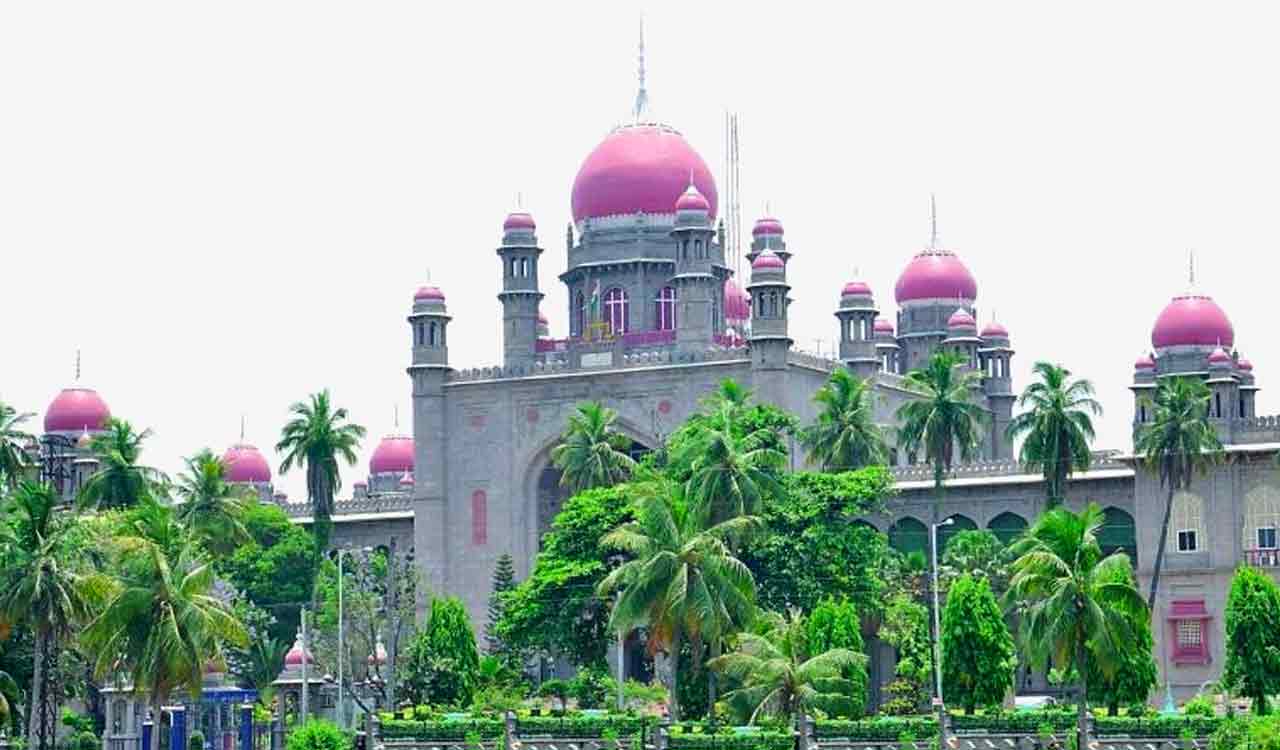
By Legal Correspondent
Hyderabad: The Telangana High Court has directed the Hyderabad Disaster Response and Asset Protection Agency (HYDRAA) to strictly follow legal procedures when dealing with the demolition of structures at the Gayatri Educational and Cultural Trust.
The directive came following a writ petition filed by Gayatri Educational and Cultural Trust, Anurag University, and Neelima College of Medical Sciences, which are operated by a group headed by BRS MLA Palla Rajeshwar Reddy. The petitioners challenged the HYDRAA’s actions related to the demolition of properties without adhering to due process. The disputed property, located at Korramula village, Ghatkesar Mandal, Medchal Malkajgiri, spans 17 acres and 21 guntas. The petitioners argued that HYDRAA’s actions were conducted in violation of the Telangana Water, Land, and Trees Act, 2002, and other relevant laws.
The petitioners also raised concerns about the lack of prior notice before the demolition activities were initiated. They contended that these actions were ultra vires, meaning they were beyond the legal authority of the HYDRAA.
Justice T. Vinod Kumar, who presided over the case, considered the arguments and issued a directive requiring the HYDRAA to follow due legal procedures before proceeding with any further demolition actions.
2. A two-judge bench of the Telangana High Court, comprising Chief Justice Alok Aradhe and Justice J. Sreenivas Rao, has recently heard a series of writ petitions challenging the constitutionality of provisions under the Telangana Education Act, 1982. The petitions primarily contest Section 20 of the Act, which pertains to the application of permissions for establishing educational institutions in relation to the All India Council for Technical Education (AICTE) approvals.
The petitions were filed by several prominent educational institutions, including Marri Educational Society, Vidya Jyothi Educational Society, CMR Educational Society, KMR Educational Society, and Malla Reddy Educational Society. These institutions argue that the application of Section 20 by the Telangana Higher Education Department is unconstitutional and conflicts with the AICTE’s regulatory authority under Section 101k of the AICTE Act, 1987. The petitioners contend that the current interpretation and application of Section 20 violate Article 254 of the Indian Constitution, which pertains to the distribution of powers between the union and State legislatures. They argue that the section should be either struck down or read down to ensure it aligns with AICTE regulations. The counsel representing the petitioners emphasized that the provision should only come into play after a comprehensive educational survey has been conducted by the AICTE, before considering fresh or renewal applications for the upcoming academic year. Additionally, the petitioners are seeking the court’s intervention to set aside a memo issued by the Telangana government on August 24, 2024, which has affected the approval status and student intake for the 2024-25 academic year for the affected institutions.
The bench, having considered the submissions, admitted the case and directed notices to be issued to several key authorities, including Jawaharlal Nehru Technological University (JNTU), the All India Council for Technical Education (AICTE), the Telangana State Council for Higher Education, and the Convenor of TG EAPCET. The court has scheduled the matter for further hearing on September 4, 2024, to obtain responses from the concerned authorities.
3. A two-judge panel of the Telangana High Court has criticized the State government for its failure to implement key provisions of the Right of Children to Free and Compulsory Education (RTE) Act, 2009. The panel, consisting of Chief Justice Alok Aradhe and Justice J. Sreenivas Rao, was hearing a Public Interest Litigation (PIL) filed by advocate Thandava Yogesh, who challenged the State’s inaction regarding the Act. The PIL contends that the RTE Act mandates that 25 percent of admissions in Class I and Pre-School Education be reserved for children from weaker sections and disadvantaged groups in all private schools. Despite the Act being in force for over a decade, the petitioner alleges that the state has failed to take necessary actions to enforce this provision, resulting in a denial of fundamental rights to over 10 lakh children. The petitioner has called for the withdrawal of recognition from private schools that do not comply with the RTE Act’s provisions. Earlier, the court had granted the state government three weeks to file a compliance report detailing steps taken in adherence to Section 12(1)(c) of the Act, which pertains to the reservation of seats for underprivileged children. Today, the panel expressed dissatisfaction when the special government pleader requested additional time to submit the compliance report. The court granted an additional two weeks for the report’s submission and deferred the hearing to allow the state government to respond adequately.
Related News
-
Telangana High Court begins final hearing on KCR, Harish Rao’s petition against Ghose Commission
-
HYDRAA slapped with Rs.1 lakh fine by Telangana High Court for illegally fencing private plots
-
Telangana HC hears plea over alleged extortion bid to withdraw PIL
-
Telangana HC quashes cases against Osmania University Arts College principal
-
Venkat Prabhu’s hilarious response to fan pointing out faux pas in his superhit film ‘Saroja’ breaks Internet
22 mins ago -
‘Bhoot Bangla’ makers drop new song ‘Ram Ji Aake Bhala Karenge’ featuring Akshay Kumar
31 mins ago -
Major fire breaks out at saree showroom in Jubilee Hills; No casualties
32 mins ago -
Sasikala set to announce the name of her new political party soon
50 mins ago -
2,500 CAPF companies needed if Bengal polls are held in single phase: ECI
1 hour ago -
Telangana to levy Road Safety Cess on new vehicles from March 1
1 hour ago -
HBO renews ‘Industry’ for fifth and final season
1 hour ago -
Sovereign green bonds continue to anchor India market: Report
2 hours ago

